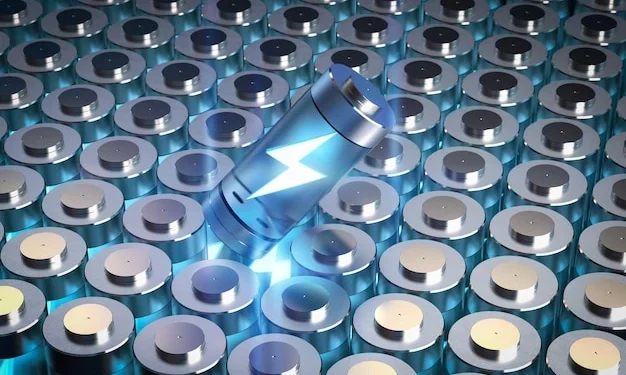According to People newspapers, a research team at Southern Methodist University (SMU), led by mechanical engineer Donghai Wang, has developed an innovative lithium-sulfur (Li-S) battery that lasts significantly longer than current models while delivering 1.5 to 2 times the energy of traditional lithium-ion batteries. This advancement, recently published in Nature Sustainability, could revolutionize energy storage for applications ranging from drones and heavy-duty vehicles to battery-powered commercial airliners.
Overcoming the Longevity Challenge
The SMU research team has tackled this issue by developing a “hybrid polymer network cathode”, a breakthrough technology that prevents sulfur from binding with lithium and degrading the battery over time.
- How it works: The cathode contains a polymer network with multiple tethers, which trap sulfur molecules before they can escape into the electrolyte and damage the battery.
- The result: A dramatic increase in battery lifespan, with SMU’s Li-S batteries demonstrating up to 1,000 charge-discharge cycles without significant degradation.
According to Professor Wang, this discovery represents a major step toward more durable, long-lasting battery technology.
Why Lithium-Sulfur Batteries Matter
A More Affordable and Sustainable Alternative to Lithium-Ion
Lithium-sulfur batteries have long been considered a promising alternative to lithium-ion technology because they are:
- Cheaper to produce, thanks to the abundance of sulfur.
- Lighter in weight, which is crucial for aerospace and EV applications.
- More environmentally friendly, as they eliminate the need for scarce and expensive metals like cobalt and nickel.
Despite these advantages, lithium-sulfur batteries degrade rapidly due to a chemical reaction that occurs over multiple charge cycles, limiting their commercial viability.
Potential Applications of Lithium-Sulfur Batteries
With higher energy density and lower costs, lithium-sulfur (Li-S) batteries have the potential to revolutionize electric vehicle (EV) technology by extending driving range while promoting more sustainable battery production. Their lightweight and powerful design also makes them ideal for heavy-duty applications, such as trucks, buses, and construction equipment, where efficiency and durability are crucial.
Beyond transportation, Li-S batteries could transform aerospace and drone technology by enabling commercial aircraft to reduce fossil fuel dependence and allowing drones and UAVs to operate longer without the weight limitations of current battery systems. Additionally, they offer a promising solution for grid storage, efficiently storing solar and wind energy to stabilize renewable power grids. With lower production costs, Li-S batteries could become a cost-effective option for large-scale energy storage, further supporting the transition to sustainable energy.
What’s Next for SMU’s Lithium-Sulfur Research?
Professor Wang and his team are continuing to refine their battery technology, focusing on:
- Further improving cycle life for commercial viability.
- Optimizing performance for large-scale manufacturing.
- Exploring real-world applications in collaboration with industry partners.
If successful, this research could pave the way for a new era of high-performance, sustainable batteries, transforming industries and reducing reliance on lithium-ion technology.
Conclusion
With SMU’s hybrid polymer network cathode, lithium-sulfur batteries are moving closer to commercial viability, offering: As Professor Wang’s team continues to optimize and scale their technology, lithium-sulfur batteries could soon replace lithium-ion as the dominant energy storage solution, driving a new wave of innovation in clean energy and transportation.
Want to stay updated on the battery industry? Check out the latest news on BatteriesDaily!











